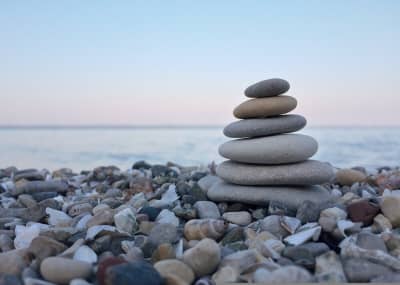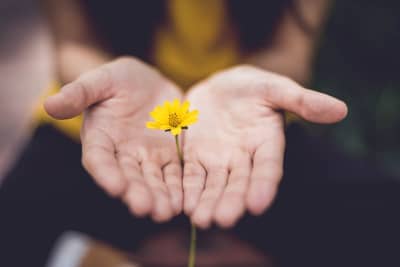One of the peaceful places I like to potter is my allotment. It’s not very big, but in the summer it provides most of the vegetables I need. In the autumn and winter there are still potatoes, Jerusalem artichokes, kale and chard. I tend to harvest the winter allotment bounty as treats rather than staples as there isn’t as much in the darker colder months compared to the summer glut of courgettes and beans.
With more time, and a piece of ground not much bigger than the one I have now, I think I could grow about half the food I need for the year. The other half of my diet is exotic, such as bean sprouts and tofu, and these are not so easy to grow in North Yorkshire.
A nice community of people use the same patch, which is divided into about ten allotments. I don’t see them often as most are retired and work on their allotments during the week. They usually do something else at the weekend, such as look after grandchildren and perambulate around the village with push chairs showing off babies.
So, it’s usually quiet when I’m digging, weeding, sorting out compost or admiring my rhubarb. On a clear day there is a good view across to the Dales about fifteen miles away. At this time of year I’ve often watched snow come off the high ground and sweep cross the vale to surrounded me in a blizzard. At which point I’ll gather up my tools and go home for toast and honey by the fire.
Last year I left my potatoes in the ground thinking I could harvest them gradually over the winter and spring by digging up what I needed. Quite a few were harvested that way, and all was going well until a big freeze arrived. When the ground thawed the remaining ones had been deep frozen and were now soggy and inedible. A terrible waste after all the nurturing.
This year I’m following the same principle of digging them up when required, but I’m accelerating the process to get them out of the ground and into my dinner before the coldest part of the winter comes. I’ve just been over to the allotment to harvest a small basket load of pink fur apples, elongated knobbly and pink, and quite delicious.
I dig them up with my bare hands, scooping up the friable soil that’s been infused with compost over the seasons to give it just the right texture and fill it with worms. There’s something elemental and connecting about plunging your hands into soil and feeling for potatoes by fingertip.
The Earth connection is not the same as that when I take off my boots on the moor in the summer and walk barefoot on the warm black peat of sheep tracks meandering through the heather near the ancient stone circles. When I do that, I am fairy light and fey.
The winter allotment fingertip digging is more visceral, a different Earth-me. I chortle and talk to each potato as it is teased from the loam “ah, there you are, you’re a beauty, how fine you are, you’ll go well in my cooking pot this evening!” Brush off a few worms, guide a hibernating toad into the compost bin, and pop the innocent tuber in my basket.
Joking aside (though I am serious about looking after worms and toads) allotments inspire art and poetry. Here are a few lines from a poem called ‘Considering I’ll become Mud’ by the gardening poet Jackie Wills:
It’s time to pay attention to microbes
colonising the dark matter of humus and loam,
to the impossibility of knowing who was here before.
You can read the whole poem and an interview with Jackie here in which she brings some summer sunshine into the description of her allotment:
https://thefridaypoem.com/jackie-wills/
Do you grow your own vegetables and enjoy gardening as a way of finding peace of mind?


Comments
You need to be Logged In and a Moodscope Subscriber to Comment and Read Comments